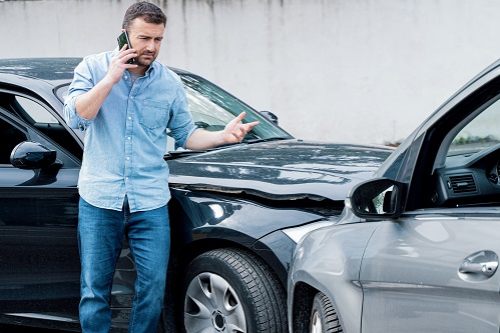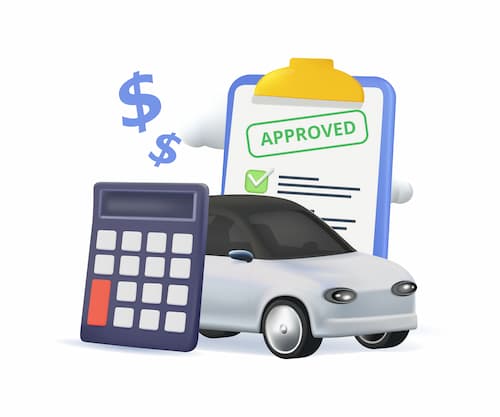Insurance requirements for a leased vehicle
You’ll probably have to get insurance before you drive your car off the lot. For starters, it isn’t your car. In addition to the legal requirements in your state, you will have to purchase additional coverage for a leased vehicle.
Collision coverage. This pays for damages to your car if you get into a wreck with another vehicle or an object, like a food truck or a telephone pole.
Comprehensive coverage. This pays for pretty much everything you can imagine. If a tornado picks up your car and hurls it into a canyon (let’s hope you’re not in it), you’re covered. Or if your car is stolen, you’re covered.
Your state law may require:
Liability coverage. This covers the medical expenses for others when you are at fault in an accident as well as property damage to another car or other property. It's required by law in most states
Personal injury protection/medical payments. Some states require these no-fault coverage, which pay for your medical bills regardless of fault.
Underinsured and uninsured motorist coverage. A few states also require you to carry coverage to pay for injuries if you're involved in an accident with an uninsured or underinsured motorist.
You might also want to consider buying gap insurance. This optional coverage pays the difference between what the insurance company will pay out if the car is totaled and what you still owe on your lease. Some leases require gap insurance.
How to get insurance for a leased car
You’ll get insurance for your leased car in the same way you do for a car you finance. You’ll comparison shop and research car insurance policies and decide what you think is the best.
If you already have car insurance you can easily add your newly leased car to the policy online, via your insurance company's app or over the phone.
You’ll probably need to get the insurance before you drive off the lot. If you want to add any extras, such as gap insurance, you can do that when you buy your policy or add it later.
Factors that affect your leased vehicle’s insurance rates
Why do you pay what you pay for car insurance?
The factors that go into determining your leased vehicle’s insurance rates aren’t any different than a car you finance, except that lenders will insist that you have comprehensive and complete coverage (after all, it’s their car and not yours; you’re borrowing it).
Insurance underwriters take a look at factors such as…
- Your credit score. It may not be fair or seem fair, but insurers tend to feel that if you’re making a mess of your finances, you may be more likely to wrap your car around a telephone pole.
- Driving history. Well, that’s fair. If you’ve got 23 speeding tickets, an insurer has reason to think you’re kind of risk.
- Years of driving experience. Have you been on the road for a couple of years? Or a couple of decades? Insurers will give a better rate to the experienced driver.
- Where you live. Because every state regulates insurance differently, your leased car might be insured much cheaper in one state than another. You also might find that you’re paying more in a city where there’s a ton of traffic and more accidents than in a rural part of the country, with fewer motorists.
How much does car insurance for a leased car cost in my state?
The cost of car insurance varies widely by state, but other factors also affect your rates. While you can look at average full coverage car insurance rates for a general idea, your driving record and the car you're leasing will make your rates vary different.
How to save on insurance for leased cars
As noted, you’re going to have to spend a decent amount on insurance for leased cars. That’s just how it goes when you’re insuring a leased vehicle. Still, here are a few ideas:
- Comparison shop. If you want cheap insurance for leased cars or the best insurance for leased cars, you’ll need to check around and compare car insurance policies. You want to look for policies that don’t just have reasonable rates but offer discounts, such as driving several years without an accident.
- Work with an insurer that has a telematics program. Those are the devices you plug into your car, and if you’re a good driver, your insurer will see that. It’ll receive data that you don’t speed like crazy, and you don’t brake hard.
- Pay your policy upfront rather than monthly. That can be a challenge for many people, but it can often save you around 5% off a policy.
What is leasing a car?
Leasing a car is a fancy way of saying that you’re renting a car. It is more complicated than renting a car from, say, a rental agency. For instance, even though making rent payments on time generally doesn’t affect your credit; unfortunately, your lease-payment history does affect your credit.
But if you lease a car, you don’t own it, although, at the end of the leasing period, you will have the option to start financing the car so that you can buy it.
What are the benefits of leasing a car?
There are quite a few benefits to leasing a vehicle, depending on your situation. Here are some things you can probably look forward to:
- Having lower monthly payments than you would with a loan on the same car
- Your leased car will usually have a warranty which means you’re probably not spending much with a mechanic
- You may save some money on sales tax
- You always have a relatively new car
Insurance for leased vs. financed vehicles
There is really little difference between insurance policies for leased cars compared to financed cars. Both general have the same requirements. Insurance rates are not based on how you obtained your car, so there's no difference in price whether you lease or finance.
FAQ: Leasing and insurance
Is car insurance higher for leased cars?
The cost of your insurance has nothing to do with the lease. However, if you previously carried liability only, you'll find that the required full coverage policy costs more.
Can you lease a car with insurance included?
Generally, no, you have to buy your own car insurance. That said, some lenders will include gap insurance within the contract. So, you may not need to purchase gap insurance.
What should I do with my auto insurance after the lease ends?
You can cancel your insurance when the lease ends and you return the vehicle.
Will leasing a car affect the cost of insurance?
No. The fact that you have leased the car has no bearing on your insurance rates.
Do you have to have full coverage auto insurance to lease a car?
Yes. Lenders generally won’t allow you to drive off the lot until they know that you’ve purchased full coverage auto insurance.



